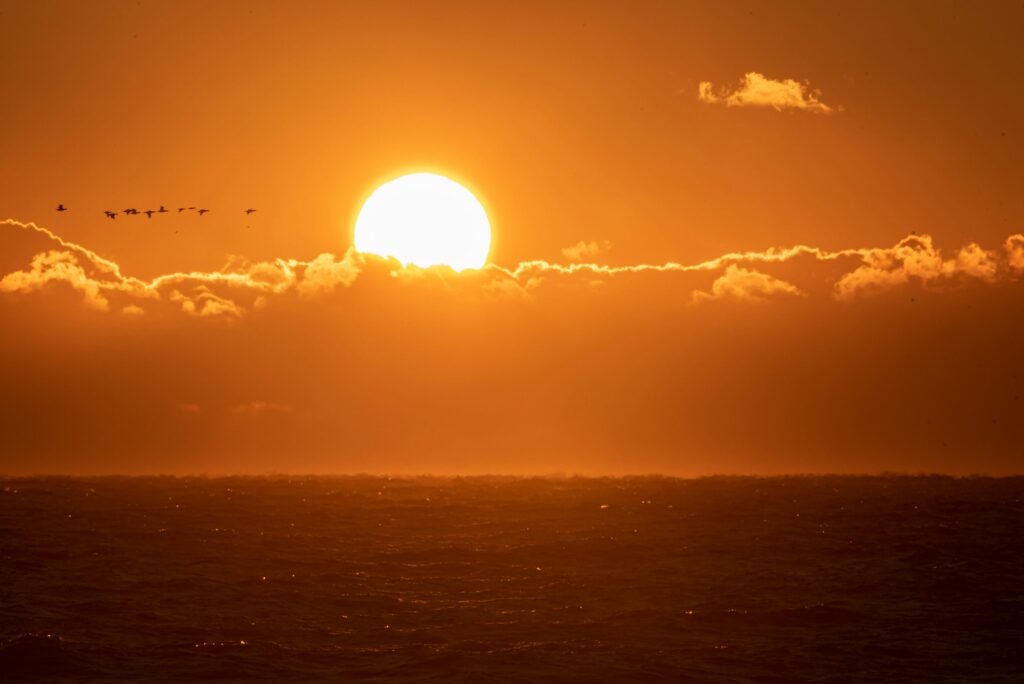A number of people have pointed out that the coronavirus lockdown has reduced real pollution considerably, giving us potential insights into a number of matters including the impact of aerosols on warming. But some have also noticed something odd: It hasn’t reduced “carbon pollution” despite the massive reduction in industrial activity, transportation and so on. Thus Joe Bastardi, a professional meteorologist with a sideline in global warming skepticism, took square aim at a BBC headline “Coronavirus: Air pollution and CO2 fall rapidly as virus spreads”. He didn’t just remind people that CO2 is not soot. He showed that the famous Mauna Loa Observatory measurements of atmospheric parts per million shows no departure from trend. Good heavens. Can it be natural?
Wikipedia delivers its usual balanced view on climate, saying “Bastardi is an outspoken denier of human-induced global warming. He has written a book describing his views, which are sharply at odds with the scientific consensus on the topic.” But facts are stubborn things. And as Bastardi notes, CO2 readings at Mauna Loa vary on a seasonal basis because there is more land mass in the northern hemisphere and hence its growing season pulls down CO2. But as he also notes, the cyclical feature is superimposed on a trend of rising CO2. And so it was plausible that what mattered was that human generation of CO2 was responsible for the secular trend.
There is a different theory. Some people believe that atmospheric CO2 responds to temperature changes rather than causing it. In his An Inconvenient Truth Al Gore famously superimposed ice-core readings of CO2 and temperature going back the better part of a million years and showed a striking correlation. But what he did not point out, and we will presume it’s because he was too dense to notice rather than too dishonest to admit it, is that there’s a lag of about 800 years between the change in one and the change in the other and, crucially, it’s temperature that moves first.
If this theory is correct, the natural carbon cycle is not automatically in balance absent human CO2 and unable to digest much of our nasty version of the stuff. (Yes, you don’t have to tell us, nature can’t tell the difference.) Rather, when the Earth is warming the oceans degas CO2 and atmospheric concentrations rise. And when it’s cooling the opposite happens. As Bastardi points out, the oceans are a vast reservoir of CO2. And as he also points out, they’re considerably warmer now than they were in the 1980s.
Alarmists might still claim that the warming is caused by the CO2 that causes the warming in a self-reinforcing runaway “greenhouse effect”. They might say that the failure of atmospheric CO2 to drop, or level off, over the past month or two is simply an indication of the time-scales involved. The science is not, to coin a phrase, settled. But it is revealing that reductions in human production of CO2 have not, at least yet, slowed the rise in atmospheric CO2. And that the press reported that it had anyway.



I read an article, not sure where, that the Green people say that we should expect higher temperatures this year despite the lower CO2 because the pollution is also reduced which helps shield the earth. Well isn't that a kick in the head! So I suspect the next movement should be to increase pollution to save the earth. I think that may be something they are accomplishing by burning biomass according to the Michael Moore movie.
Yes, I have often jokingly considered the idea of increasing pollution to reduce the Earth's temperature. During the 1960s, 70s & 80s we had a period of cooling. The explanation given by the climate orthodoxy is that then we were using a lot of coal fired power stations & the particulate pollution produced by them was reflecting the solar radiation back into space. Not all particulates are reflective however, some are absorptive & cause warming, but in this case these were reflective.
The idea that the increase of atmospheric CO2 is mostly natural is supported by valid scientific analysis in Harde 2017, Harde 2019, Berry 2019, and any of several videos by Murray Salby. I have tried to get this work in front of more people because I see it as the most important aspect in the debate over climate policy. If we are not causing the CO2 rise we can't stop it so all talk of mitigation of global warming could change to debate of climate forecasting methods and reasonable steps of providing protection from adverse weather.